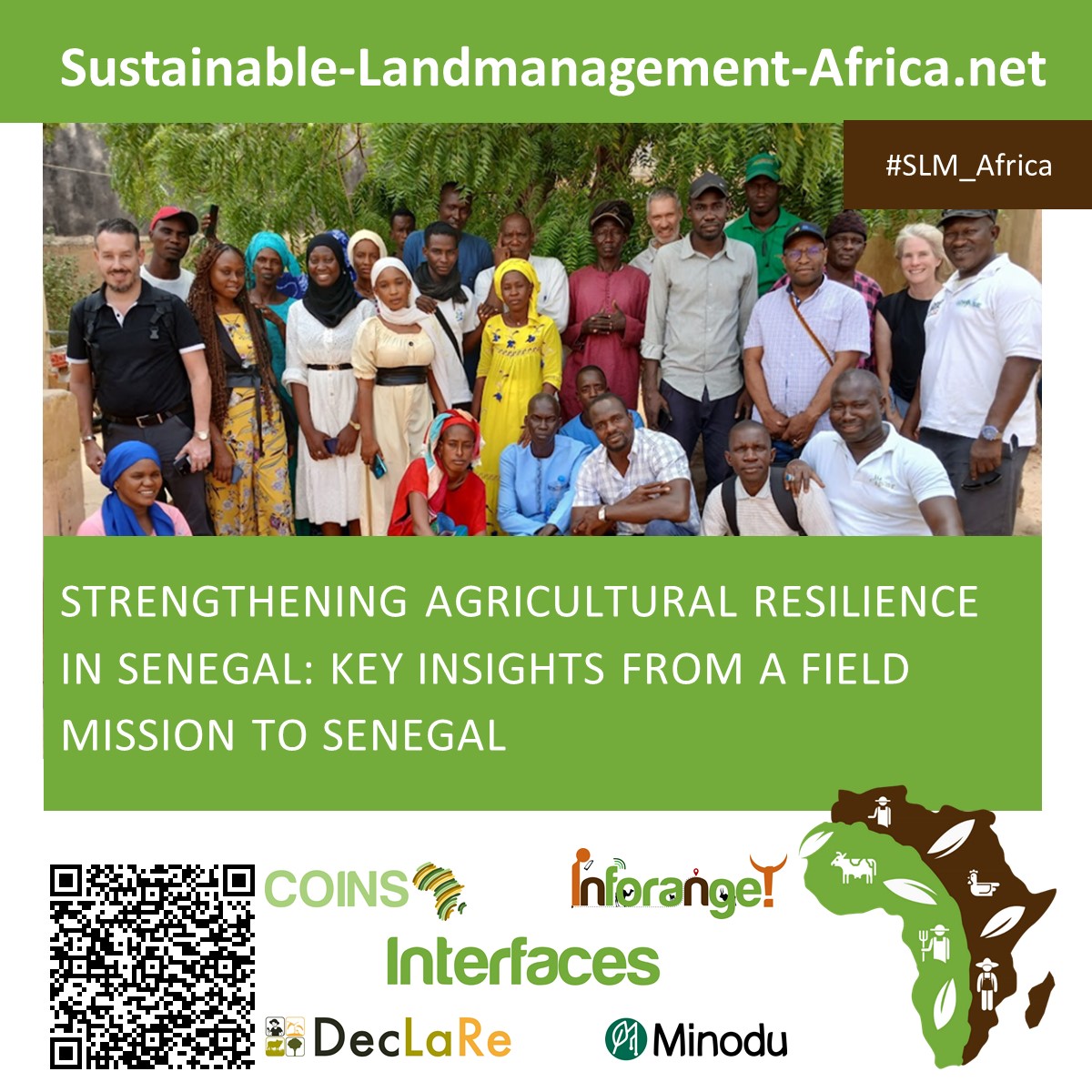The COINS project, which focuses on sustainable land management and climate risk evaluation, conducted a field mission in Senegal from May 27 to June 2, 2024. Led by the University of Hohenheim (UHOH) and the Leibniz Centre for Agricultural Landscape Research (ZALF), in collaboration with local partners, the mission aimed to explore farmers’ coping strategies and risk management practices across the regions of Podor and Dagana
Key findings from this mission revealed the multifaceted challenges faced by smallholder farmers, including climate change, limited financial services, poor infrastructure, and organizational issues. Farmers employ both short-term coping strategies and long-term risk management measures to address these challenges. Regional differences were observed: for instance, in Podor, irrigation issues and fluctuating weather patterns destabilize farming, while in Galoya, limited access to finance hinders investment in climate-resilient technologies, while in the Dagana region (Kassack area) observed challenges include a shortage of mechanized harvesting equipment and complex relationships between crop farmers and pastoralists.
BASED ON THESE INSIGHTS, SEVERAL RECOMMENDATIONS WERE MADE
The need to:
● Implement programs and initiatives that encourage the adoption of sustainable intensification and land management practices across Senegal and West Africa.
● Facilitate access to financial services for farmers, enabling investment in inputs, mechanization, and climate-resilient technologies.
● Invest in irrigation infrastructure maintenance, repair, and modernization to ensure reliable water access for farmers.
● Develop strategies to improve coordination and collaboration among farmers, government agencies, and other stakeholders to enhance resource management and address infrastructure challenges.
● Provide training, subsidies, and access to appropriate machinery to encourage the adoption of SRI, mitigating labour-intensive requirements and reducing costs.
In conclusion, overcoming the challenges faced by smallholder farmers in Senegal requires a multi-pronged approach. By focusing on sustainable practices, financial inclusion, and infrastructure improvements, Senegal can build a more resilient and productive agricultural sector, ensuring food security and economic growth for its rural communities.

